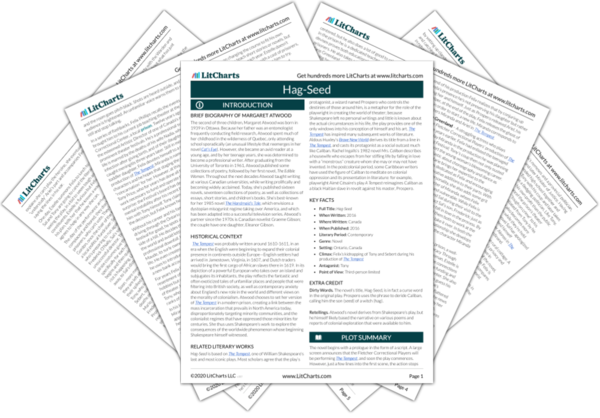Prospero never explains what exactly he feels guilty about, but posits that since
The Tempest is essentially about Prospero producing his own play, “maybe the fault for which he needs to be pardoned is the play itself.” No one understands at first, but Felix reminds them that he engenders a lot of anger and suffering during the play, for which he now wishes to be forgiven.
